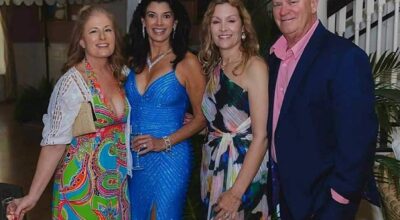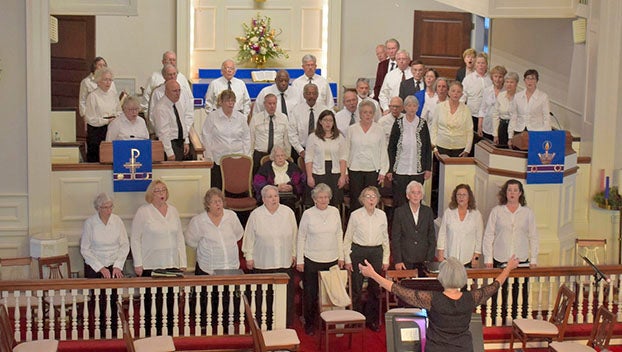It is a small world
Published 3:24 pm Sunday, April 3, 2022
|
Getting your Trinity Audio player ready...
|
I remember when the earth seemed unimaginably large. It’s still easy to feel that way. If I spread a blanket on the grass and look up at the sky, I can imagine a gigantic planet spinning beneath me. I’m an infinitesimal speck, hanging on for the ride. If I stand on the shore and look out to the horizon, the earth’s waters stretch as far as I can see. It seems endless.
Early explorers probably had a similar sense of the earth’s vastness. The first sailing expedition to make it all the way around the world took three years. Ferdinand Magellan left Spain in September 1519 with five ships and 270 crewmen. Along the way, ships and crewmen were lost. Magellan himself was killed in the Philippine islands. In September 1522, just one ship, under the command of Captain Juan Sebastian Elcano, arrived back at the starting point.
If you measure the size of the earth by the time it takes to go around it, technological innovations have contributed to some shrinking. The current record for the fastest circumnavigation by sea was set in January 2017 by the crew of IDEC Sport, a racing trimaran. They completed the journey in just a few minutes less than 41 days. The fastest solo aerial circumnavigation (at least so far) was accomplished in 67 hours by Steve Fossett in 2005. The International Space Station completes a circumnavigation about once every 90 minutes.
Earth’s circumference, measured around the equator, is 24,901.4 miles. This may seem like a huge number, but it is comprehendible. Say you know someone who commutes from Farmville to a job in the Richmond area (or vice versa). The drive might be 50 or 60 miles for places between Midlothian and downtown Richmond. Let’s pick an average of 55 miles, a 110-mile round trip. Suppose there are five working days per week. But, because of vacations, holidays and sick days, the annual travel requirement corresponds to 48 weeks, representing a total of 240 round trips. Do the math: 240 round trips at 110 miles equals 26,400 miles. A person with this type of commute drives the equivalent of completely around the world every year with almost 1,500 miles left over. That’s enough extra to drive from Farmville to Burlington, Colorado (off I-70 just west of the Kansas state line).
Would you rather walk? According to Jeremy DeSilva, paleoanthropologist and author of First Steps: How Upright Walking Made Us Human, the average person will take approximately 150 million steps during his or her lifetime. He claims that’s enough steps to walk around the world, not once, not twice, but three times
The amount of planetary space per person is also shrinking as earth’s population grows. For the first several millennia of human history, human populations chugged along with gradually increasing numbers. It wasn’t until 1800 that people reached their first billion. It took 127 years to reach the second billion. Today, less than 100 more years, we’re just a bit shy of eight billion. That’s a lot of mouths to feed.
According to the Monterey Bay Aquarium, approximately three billion people rely on seafood for a significant amount of their protein, but 90% of fish populations are facing challenges. Habitat losses and catch rates that do not permit stocks to recover have led to collapses of many important fisheries. The ocean is running out of fish.
Other planetary resources that once seemed limitless are proving to be finite. Although humanity often viewed earth’s resources as inexhaustible, this has never been true. Droughts bring water scarcity. Depleted soils lead to loss of agricultural productivity. Mines give out. Being careless with resources leads to crises that emphasize the fragility of our small planet’s equilibrium.
Earth Day, which falls on April 22, provides an opportunity to consider how wisely precious resources are being used. The focal theme this year, invest in our planet, challenges individuals, businesses and governments to consider pathways to sustainable prosperity. Some people will participate in organized events. Others prefer individual tasks, such as recycling or upcycling, purchasing reusable products, picking up trash, or planting a tree. The health of our world is in our hands.
KAREN BELLENIR has been writing for The Farmville Herald since 2009. Her book, Happy to Be Here: A Transplant Takes Root in Farmville, Virginia features a compilation of her columns. It is available from PierPress.com. You can contact Karen at kbellenir@PierPress.com.





